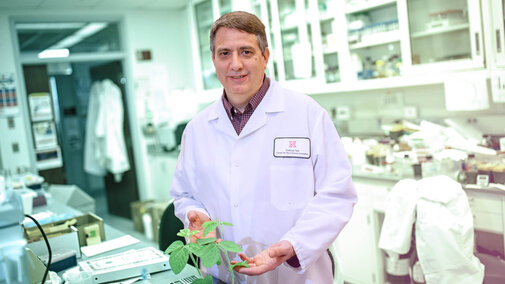A team of researchers including a University of Nebraska-Lincoln biochemist has developed a low-cost process to produce pheromones and enable the next generation of pest control. The findings facilitate environmentally friendly methods to protect food crops currently facing increased vulnerability to insect attack.
The research team including Ed Cahoon, a UNL professor of biochemistry and director of the university’s Center for Plant Science Innovation, has developed a novel path to produce significant amounts of inexpensive pheromones from the ancient Viking seed oil plant Camelina. The project demonstrates the biological efficacy and economic feasibility of pheromone production in plant factories by metabolic engineering of an oilseed crop.
“Plant-based production of pheromones can provide growers with sustainable pest controls that are badly needed,” said Cahoon, the George W. Holmes professor with UNL’s Department of Biochemistry. That’s especially the case “now that global agriculture faces increasing pest resistance that renders conventional insecticides less effective and increasing pressure from governments and consumers demanding ever safer and greener food production.”
By modifying the genetic code of plants to express genes of insects and other organisms that guide the biosynthesis of the desired pheromones, the researchers created plants that produce insect pheromone precursor compounds in their abundant seed oil.
Pheromones are among the next generation of insect controls because they protect crops by manipulating the behavior of problem insects, such as by preventing them from mating, by mass trapping or by luring them away from crops. Unlike conventional insecticides, pheromone controls affect only the targeted pest species, leaving beneficial pollinators and other wildlife unharmed. In addition, pheromones do not leave harmful residues on food produced, cause no environmental pollution and are far less prone to developing pest resistance.
To learn more about the project and the research team’s recently published findings, read this article in IANR News.

